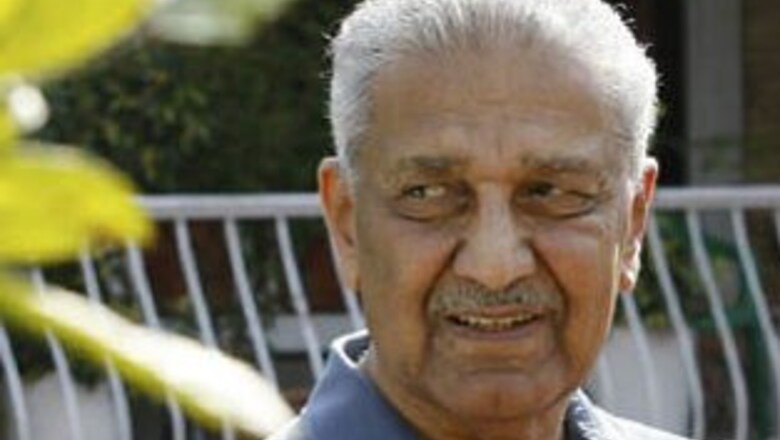
views
Geneva: Pakistan, accused by some powers of blocking progress in the world's top disarmament forum, insisted on Wednesday that it wants an end to nuclear weaponry and is playing an active role to bring this about.
But in a statement issued in Islamabad, it argued that "the legitimate security interests of all states" had to be protected in any move towards new talks in the long-stalled Conference on Disarmament, under UN auspices, in Geneva.
Pakistan "subscribes to the goals of nuclear disarmament and non-proliferation... and has always played an active and constructive role in the Conference," the Pakistan Online News Service (www.pakistanviews.worldpress.com) cited a foreign ministry spokesman as saying.
Like its neighbour and rival India, Pakistan conducted nuclear tests in 1998 even though it is not one of the official nuclear powers, and diplomats believe its manoeuvres at the disarmament conference aim to preserve its nuclear status. Pakistan has not signed Nuclear Non-Proliferation Treaty.
Scientist Abdul Qadeer Khan, the father of Pakistan's nuclear programme, is widely regarded as a national hero even though he played a key role in the transfer of nuclear technology to rogue states.
The Pakistani statement came as China's Foreign Minister Yang Jiechi was calling at the forum in Geneva for a quick start to talks on a treaty to halt production of the fissile material -- enriched uranium and plutonium -- used to make nuclear weapons.
Yang made no direct reference to Pakistan, but his comments appeared at least partly aimed at Beijing's Asian ally which the 27-nation European Union, backed less vocally by others in the 65-member conference, says is blocking such talks.
A so-called fissile cut-off agreement is widely regarded as the next achievable step towards ending the threat of nuclear war and a recent breakthrough had appeared to clear the way for negotiations to begin in the next few months.
Deadlock, Breakthrough, Consensus
At the end of May, after 12 years of haggling that paralysed its work, the forum agreed by consensus that it would set the talks on track within an overall work programme by the end of its current session on September 18.
PAGE_BREAK
But on Monday current conference president Caroline Millar of Australia said detailed backstage discussions over the past few weeks on how to proceed had got nowhere and Pakistan was seeking to reopen the consensus text.
Sweden, current holder of the EU's revolving presidency, suggested Pakistan -- a nuclear power in a long stand-off with neighbour India -- was using "procedural manoeuvres" to ensure that no real agreement on cutting weaponry could be reached.
British envoy John Duncan said Pakistan's stand was disappointing as the five permanent members of the UN Security Council -- the United States, Russia, China, France and Britain -- as well as Iran, North Korea and Israel, back the consensus.
Pakistan's envoy made no comment after Yang's speech on Wednesday and the conference adjourned with no date set for its next full session.
But diplomats said Wednesday's statement in Islamabad, which argued that Pakistan was not violating the May consensus, indicated that it had no intention at this stage of giving ground to pressure from other countries.
Pakistan's stance, the statement said, was based on the principle "that security is invisible and the legitimate security interests of all states must be promoted in an equitable and non-discriminatory manner."
Pakistan wanted the conference to pay equal attention to the four key issues on its overall agenda: general nuclear disarmament, guarantees from nuclear powers that they would not attack non-nuclear states, banning nuclear weapons from outer space, and the fissile cut-off pact, it added.















Comments
0 comment